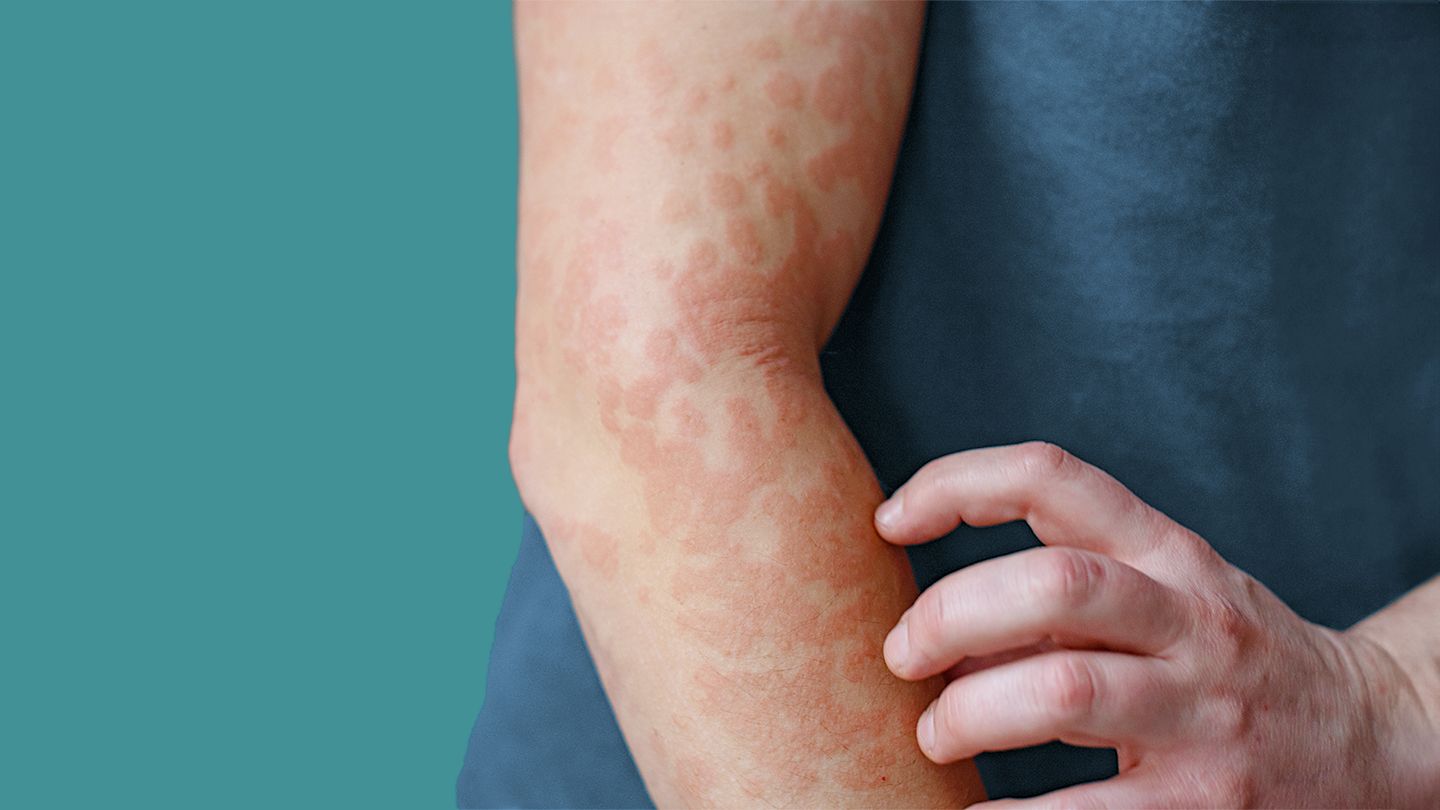The treatment for chronic spontaneous urticaria can vary from person to person and often depends on the severity of the hives. While anti-itch medications are often the first-line treatment option, some people may not need to take anything at all.
“If I have a patient who is having intermittent hives — they’re getting an outbreak once a week or a couple times a month — taking a medication every single day for this may not be the appropriate strategy,” says Aronica.
Medication Options
Part of the decision to treat or not treat chronic hives largely depends on the person, says Aronica. “That decision can depend on how the hives are affecting [the person] and what they want to accomplish.”
The standard therapy for people having frequent episodes of chronic hives is a long-acting, nonsedating antihistamine, many of which are available over the counter.
If these medications aren’t effective, doctors may opt to add or substitute another drug. These include:
Histamine (H2) blockers: Also called H2 receptor antagonists, histamine blockers are injected or taken orally. Examples include cimetidine (Tagamet HB) and famotidine (Pepcid).
Anti-inflammation medications: Oral corticosteroids, such as prednisone (Deltasone, Rayos), can help with symptoms such as discoloration, itching, and swelling but shouldn’t be used long term.
Asthma drugs with antihistamines: These medications can help with hives and itching in some people when used together with antihistamines. Examples are montelukast (Singulair) and zafirlukast (Accolate).
Monoclonal antibodies: The drugs omalizumab (Xolair) and dupilumab (Dupixent) may be given as injections for difficult-to-treat chronic hives.
Immune-suppressing drugs: These medications — including cyclosporine (Neoral, Sandimmune), methotrexate, and tacrolimus (Prograf, Protopic) — work by suppressing the immune system and are usually limited to short-term use.
Alternative and Complementary and Integrative Therapies
Taking a vitamin D supplement may offer some relief for people with chronic urticaria, because a vitamin D deficiency may be associated with a slightly higher risk of urticaria, says Aronica. “In some cases, if you address the deficiency, the hives may improve,” he says.
For example, researchers at the University of Nebraska found that people with chronic hives who added 4,000 IU of vitamin D3 to their medication regimen had a significant improvement in chronic urticaria symptoms at the end of three months.
That said, it’s possible to take too much vitamin D, because it can be toxic in high doses. So make sure you talk to your healthcare provider before taking it.
Read the full article here




